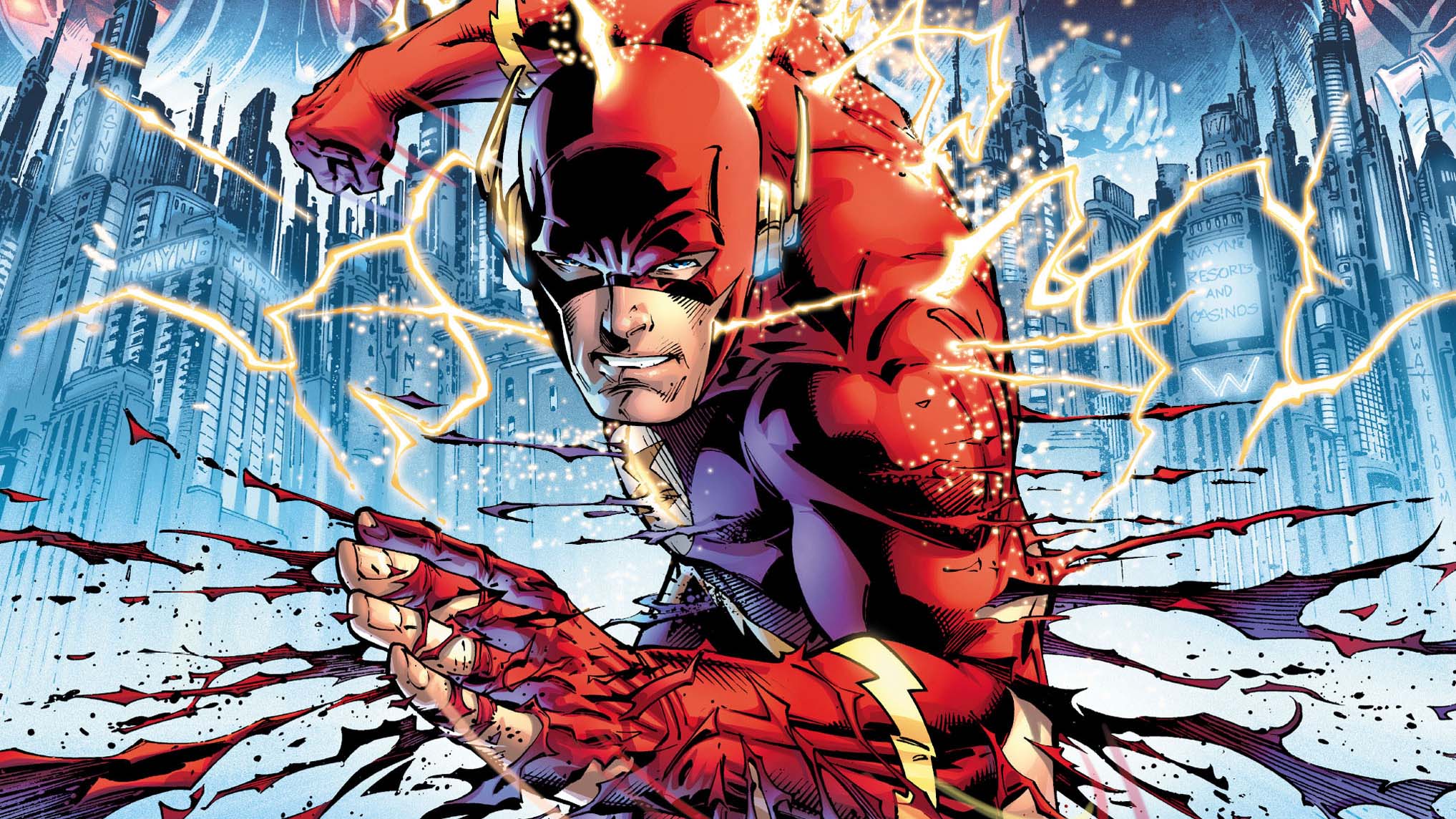The Flash: FLASHPOINT (Paradox) | Comic Lore and History REVISTITED
INTRODUCTION
“There’s only one thing I know about life. I know some things happen by chance. And some things happen because we make them happen. Barry Allen was once haunted by the past. But when he became the Flash, he left the ghosts behind. He found love. A family. And for the first time ever… friends. Barry thought yesterday was finally behind him… But somebody wouldn’t let him escape it. When Barry came to me for help, I turned him away. I’m not the hero of this story. I’m a man who’s been corrupted by his own unbearable pain. I’m a man who has too much blood on his hands to be called good. I’m a man who had nothing to live for – until the day I met the Flash.” -Thomas Wayne (Flashpoint)
With the recent release of Warner Brothers’ The Flash, revisiting the “Flashpoint” comic series, which this movie was heavily inspired by, seemed appropriate. “Flashpoint” is considered by many to be the defining run for The Flash and is always among the first runs listed when the character is mentioned. The scale and thrilling personal and universal consequences of the story are not the only things that cement it as the go-to Flash comic run. “Flashpoint” also perfectly lays out the character’s abilities, his interpersonal relationships, the way he interacts with the world, and his struggle against The Reverse Flash. Everything that is Barry Allen, The Flash, his story, and the thematic throughline of his character are exemplified within “Flashpoint.” Self-sacrifice and letting go of one’s past and trauma is never an easy thing and is the core struggle within Barry Allen, far more so than any conflict in opposition to a villain or cataclysm. No matter how fast he runs, his past and shortcomings always catch up with him.
“Flashpoint” was a 5-issue-arc running from May through August of 2011 written by Geoff Johns, and was the last major Post-Crisis arc before the New 52 in September of 2011. Despite this run being heralded as some of the best Flash ever written, it is among the last arcs released before the decline of the comic industry at both DC and Marvel. The former juggernaut that was DC Comics has paled and faded in the twelve years since “Flashpoint” was released. The best was also the last.
As I haven’t seen the movie yet, this article will primarily consist of a recap of the comic storyline but will not go out of its way to attempt to predict the changes from the source material in the film.
THE DEATH OF NORA ALLEN
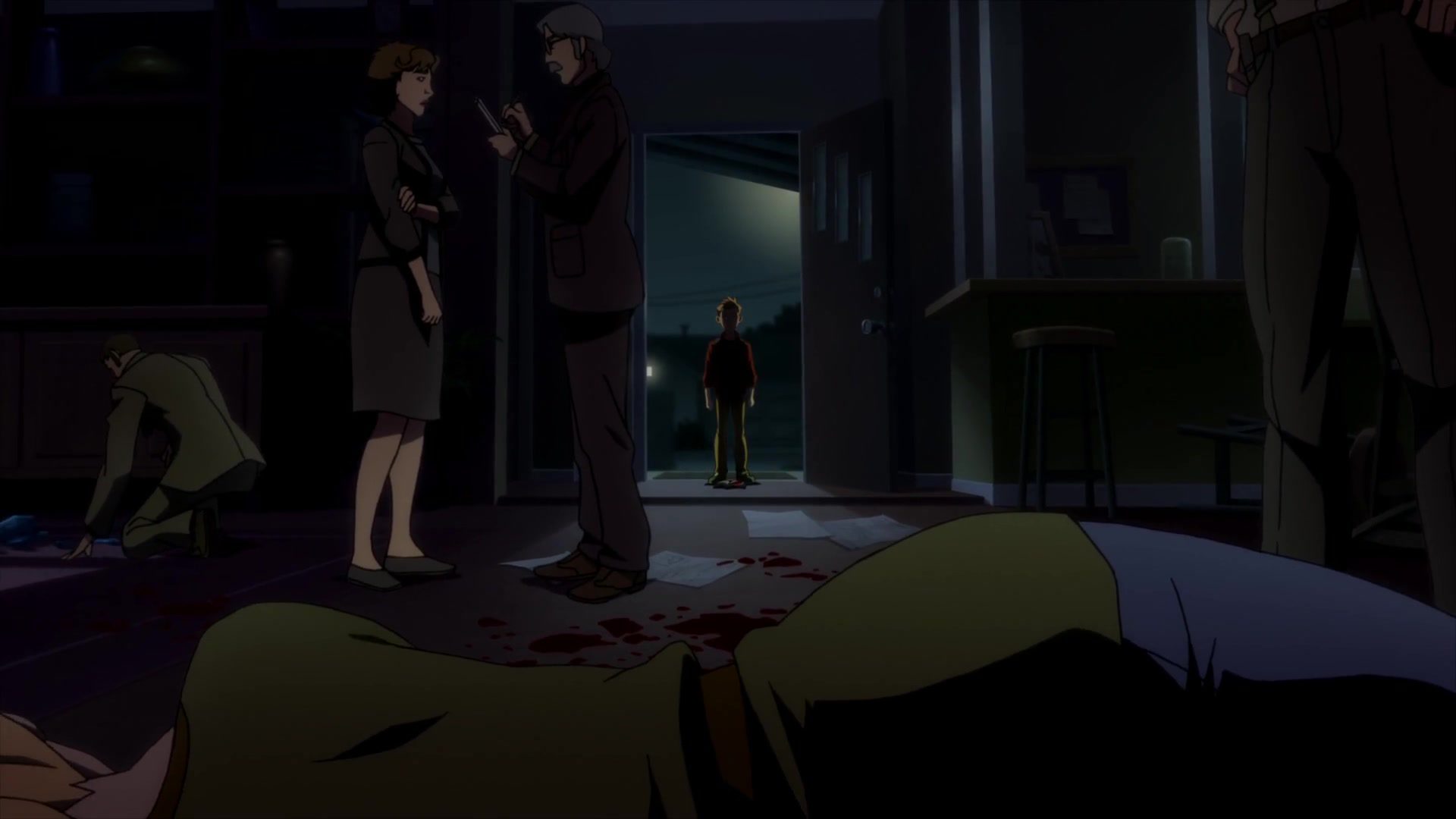
A single moment can shape the future. One event can be as impactful on the face of the earth as it is upon the life of a young boy. As much as heroes revile against trading lives, sometimes a life traded is not only the lesser evil but facilitates the greatest good. One such life traded and defining moment was the death of Nora Allen. The seemingly ordinary woman’s murder was tragic, and she was mourned by many. Still, none knew how impactful her death would be. If it were not for the loss of his mother, Barry Allen would not have pursued a career in forensics to find her killer. Nor would he have been in the exact right spot at the exact right moment with the exact mixture of chemicals necessary to birth the Speed Force into the world with him as its conduit. If all these dominoes had not been put in place beginning with her death, The Flash would never have been born.
Through Nora’s murder and the obsession to save her, it created within Barry, the world and countless lives were saved on numerous occasions. However, is such a trade worth it? Is the loss of a single life, especially a life so cruelly and violently taken, a sacrifice worth the creation of The Flash? It is this very question that Barry struggles with through this arc, warring against his own needs and desires and the good of the world.
It’s fascinating to see what impact one small death or life can have on the shape of the future, the cracks and ripples that come from such a tragic yet seemingly ordinary event.
BARRY ALLEN
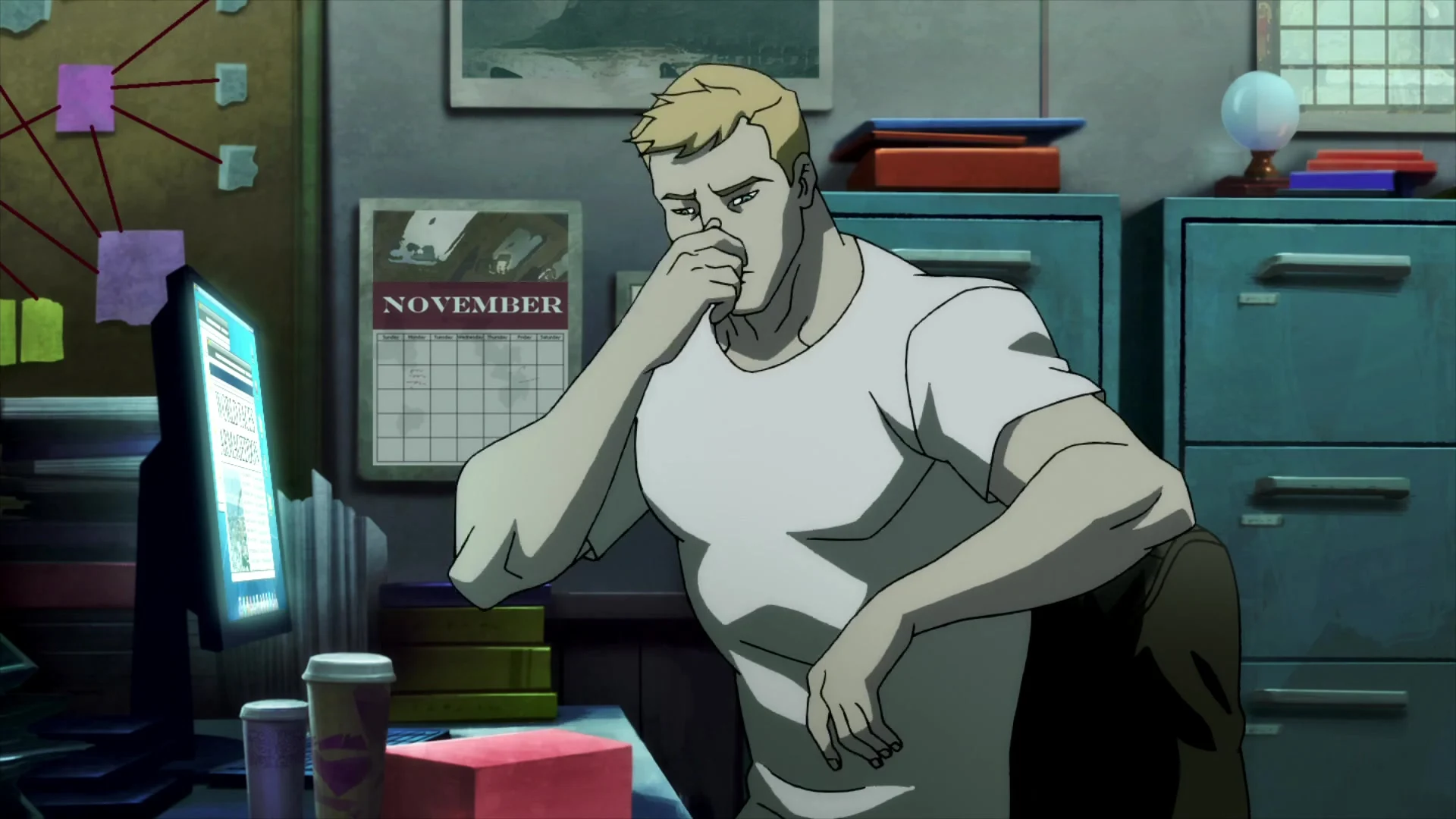
Suddenly, and seemingly without warning, on a random and unimportant date, Barry Allen awoke, having fallen asleep at his desk, in an alternate reality. Though the world around him seemed unchanged upon a cursory glance, it did not take long for the reality of the situation to become apparent. Not only was Nora Allen miraculously alive in this timeline, but it was also her birthday, the date not so unimportant as Barry had first supposed. Questions swirled within Barry, questioning how such a thing could possibly have occurred. But the exultation at a soon reunion with his mother drowned out any concerns or questions. Even the obvious drawbacks to this change in reality, such as the loss of his powers and his marriage to Iris, were not enough to initially sway him from the joy he felt.
BATMAN
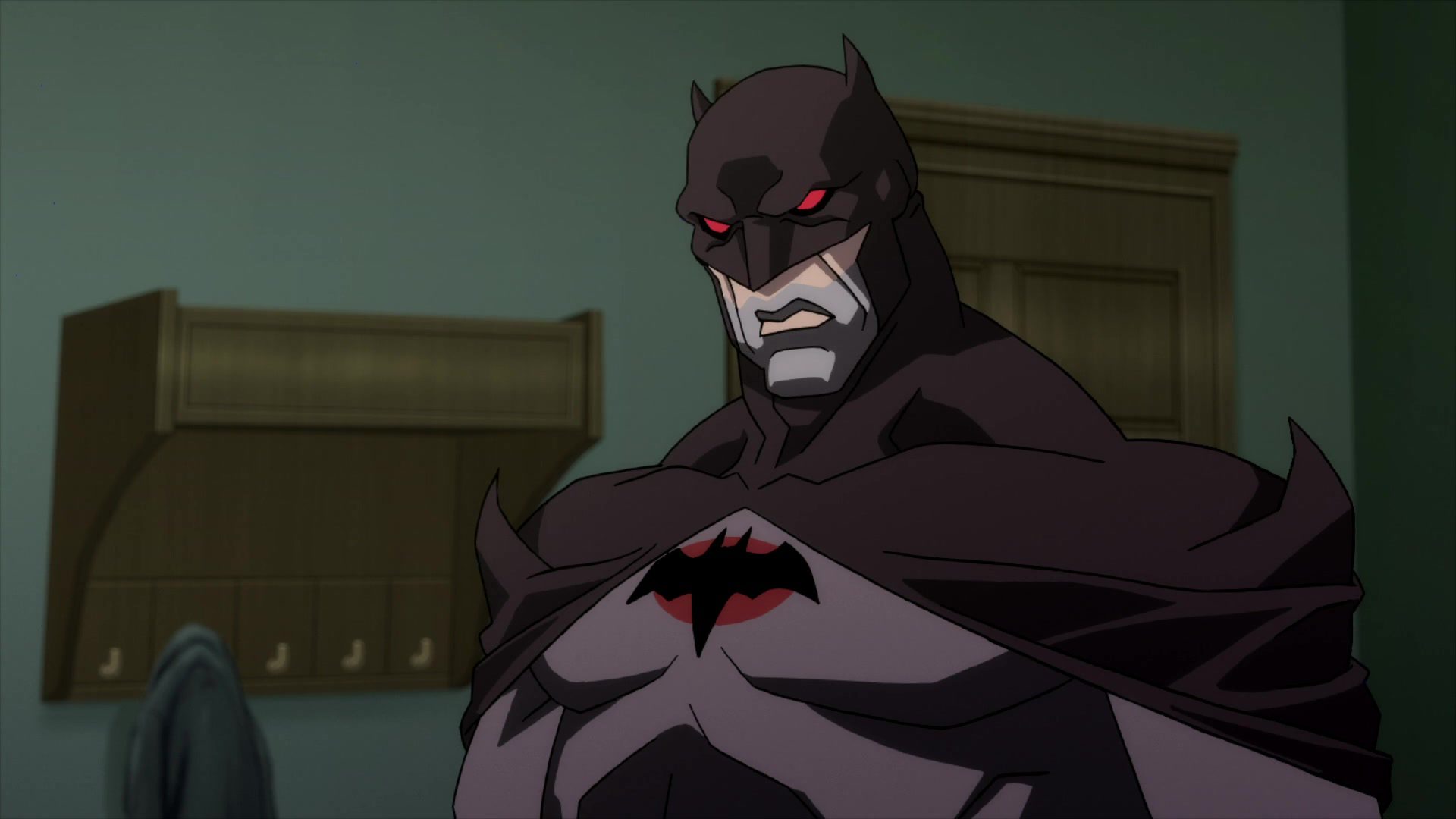
Unknown to Barry at this point, The Batman, defender of Gotham, was no longer Bruce Wayne but his father, Thomas. In this warped version of reality, it was Bruce and not Thomas who had died in that alley on that fateful night. The loss of a parent is dreadful and drove both Barry and Bruce to accomplish much and fight so very hard. However, the loss of a child is far more brutal and crafts something far more terrible. This Batman was a fearful amalgamation of everything that Bruce stood for and what his enemies saw him as. Thomas was a broken and beaten man, hollowed out by the loss of his son and the ensuing insanity of his wife. Thomas was not only an arbiter of justice but an executor of vengeance.
No amount of blood spilled was too much if it facilitated the accomplishment of his goals, and the altruistic and honorable goals that fueled Bruce were far from the self-motivated and self-destructive desires of Thomas. He had no interest or inclination to defend the world or fight for its survival. This Batman did not struggle against the criminal underworld to purify and save Gotham. He fought for his own ends and his own revenge. This horrifying monster was created because Nora Allen survived. How many dead and broken people were left in the wake of Thomas’s rampage? Were their fates worth the price of Nora’s life?
THE END OF THE WORLD

The personalities of all those who knew Barry were not the only things changed by the twisted history that flowed from Nora’s rescue. The world itself was jeopardized by her survival. The Kingdoms of the Atlanteans and the Amazons were at war, tearing the world apart. Batman was not the only hero left twisted and malformed by the change. Aquaman and Wonder Woman were also changed, pale shades and vile counterparts to the heroic and altruistic paragons they should have been. Only Cyborg was left to defend the planet, unceasingly endeavoring to form a version of the Justice League to help defend the world of mankind against the warring mythological empires. Even with all his efforts, Cyborg was not enough to unify a team of metahumans. Without the support of Batman, this reality’s metahumans believed that there was no hope nor point in standing against the oncoming doom.
THE RETURN OF THE FLASH
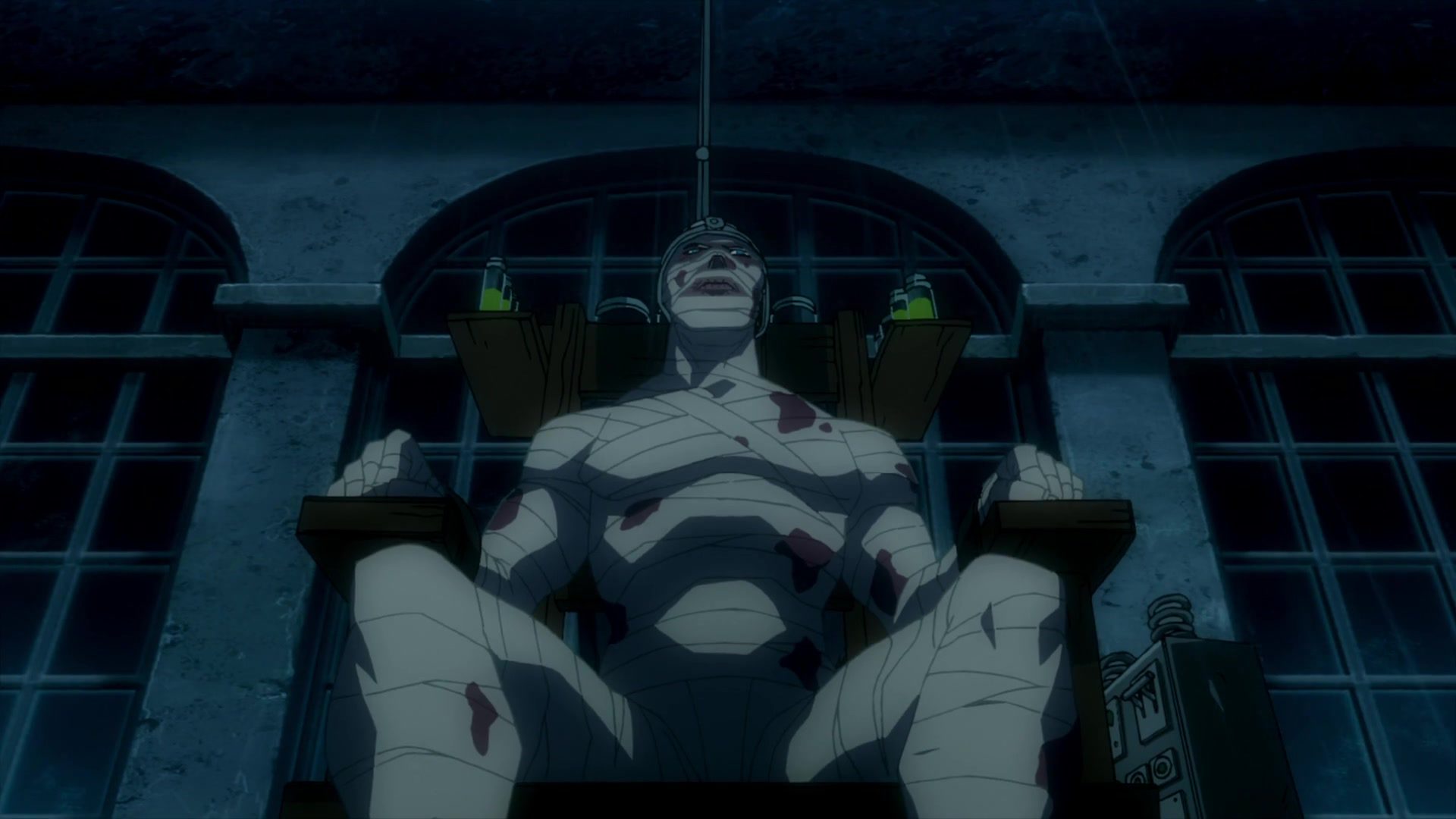
As Barry discovered more and more about this new world, a sinking realization took root deep within him. This world was broken and on the brink of disaster; only by giving up his mother for a second time could he save the world and fix this farcical reality. Upon the discovery that The Batman exists within this reality as well, Barry sought him out, endeavoring to find a solution where he must not sacrifice his mother again. However, this is not the Batman Barry knew, and only the revelation that Bruce is alive in the original history was enough to convince Thomas to fight for his world and The Flash.
Pieces of the puzzle seemingly began to slip into place as Barry discovered the costume of The Reverse Flash in his ring, suspecting that The Reverse Flash was the one responsible for tampering with the timeline. With a confrontation with his arch nemesis and a coming war between ancient species fast approaching, Barry had no choice but to recreate the circumstances of the Flash experiment that originally gave him his powers. He could no longer be vulnerable for fear that his enemies may exploit his predicament.
With the assistance and wealth of Thomas backing him, experimentation on recreating the lightning bolt that gave Barry his powers began. Their first attempt ended in near-complete disaster, near-ending any hope of fixing this reality. Not only did the first experiment fail to reconnect Barry with the Speed Force, but it also left him severely burned and barely able to move.
With The Flash out of commission, this reality stood no chance against the oncoming war or the potential manipulation of The Reverse Flash. Barry knew this; he knew that in his current condition, everyone was doomed. So, this young and broken hero forced himself back into the experiment, demanding Thomas try again. Even the bloodthirsty and singularly minded monster that Thomas had become hesitated to inflict such pain upon a young man. Yet the thought of his son alive once more pushed him to comply with Barry’s wishes.
In a flash of yellow lightning and a surge of dimensional energy, The Flash was reborn.
SUPERMAN

Even with the might of The Batman and the newly restored Flash, Barry and Thomas knew they would not be enough to hold back the encroaching armies or thwart whatever The Reverse Flash was planning. Recruiting Cyborg, this reality’s Justice League began to take shape. However, no Justice League was complete, and no team without fear of defeat without the might of Superman. With the assistance of Cyborg, Barry, and Thomas discovered that Superman’s ship had crashed in Metropolis rather than Smallville many years ago, and anything discovered in the crash was taken to a secret military facility.
Together, Batman, Cyborg, and Flash infiltrated the secret facility to save Superman. What greeted them was far worse than they could have guessed. The malnourished and mistreated Clark, a lab rat and nothing more, who had never felt the love of the Kents and never basked in the light of our yellow sun, greeted these heroes. Perhaps he would not be the powerful ally that they had hoped, but upon his freedom, any qualms they had about his usefulness were dispelled as Superman assaulted his captors and fled, flying away to claim his freedom.
As noble a cause as this rescue was, it did not, at first glance, help these heroes accomplish their goals, leaving them disheartened and disillusioned with the tasks set before them.
A NEW TEAM

Without the might of Superman, other heroes were necessary to fill out the team and give them the best chance of victory against Aquaman, Wonder Woman, and The Reverse Flash. Using Cyborg’s connections, this new team recruited Captain Thunder, Enchantress, and Elemental Woman. These heroes paled in comparison to a single Superman, but they just might be enough. Together, these heroes ventured to Europe, preparing to confront the armies of the Atlanteans and Amazons.
It was then that the origin of this war was revealed. Some time ago, Aquaman and Wonder Woman were engaged in an illicit affair. When Queen Mara discovered the affair, Wonder Woman cut her down. Enraged by the death of his wife at the hands of his lover, Aquaman swore vengeance against Wonder Woman and all Amazonians.
Trust is a capricious thing and is the most valuable building block of a team. If Thomas and Barry had managed to recruit Superman, perhaps there would have been trust, but fate is a fickle mistress. Upon the outbreak of combat, Enchantress, a new team member, betrayed the others, throwing in her support with Wonder Woman by unraveling the magic of Captain Thunder, otherwise known as both Shazam and Captain Marvel in the original timeline. In the ensuing conflict, Wonder Woman gained the upper hand against Captain Thunder, forcing him to revert to his childlike form. This Wonder Woman bore little resemblance to the one Barry once knew, for his Diana had a kind heart and caring spirit. But this Diana shed no tears and bore no qualms at the brutal murder of the child Billy Batson, the truth behind Captain Thunder.
With their strongest warrior vanquished, all hope seemed lost, leaving Barry to gaze out on the crumbling world around him. How could so much death and suffering be birthed by the salvation of his mother?
THE REVERSE FLASH
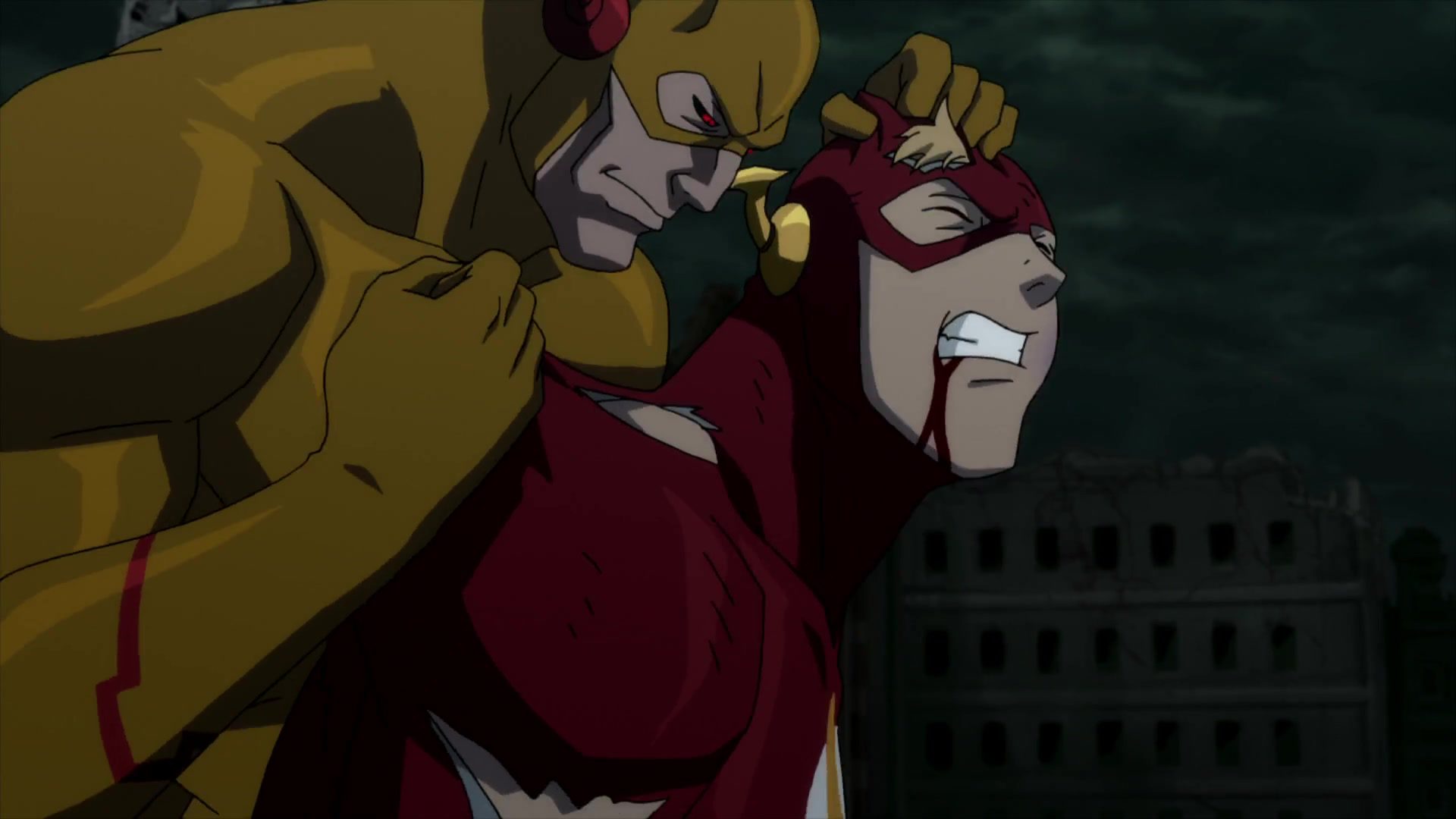
As if hearing Barry’s internal struggle, The Reverse Flash arrived, bearing truth, proof, and the answers to all of Barry’s questions. Throughout his time in this brutal reality, Barry had forced himself to believe that this chaos and death was birthed by the hands of The Reverse Flash, perhaps in some twisted plan to torture Barry, giving him a brief chance at reconnection with his mother, only to so savagely take it away from him. However, The Reverse Flash came with the truth. It was Barry, not The Reverse Flash, who went back in time to save his mother, preventing her murder, and it was that single act that had rippled through history and altered the timeline.
Unable to bear the weight of this revelation, Barry repressed it, focusing all his rage and perceived futility on utterly destroying The Reverse Flash. Despite his best efforts, Barry was overrun, The Reverse Flash gaining the upper hand. As is his wont, The Reverse Flash took his moment of victory and basked in it, reveling in Barry’s defeat. Whilst engaged in this cocky monologue, Batman sneaked up behind him and ran him through with a sword. The Reverse Flash was dead, leaving just Barry with the truth of his mistakes.
GAME OVER
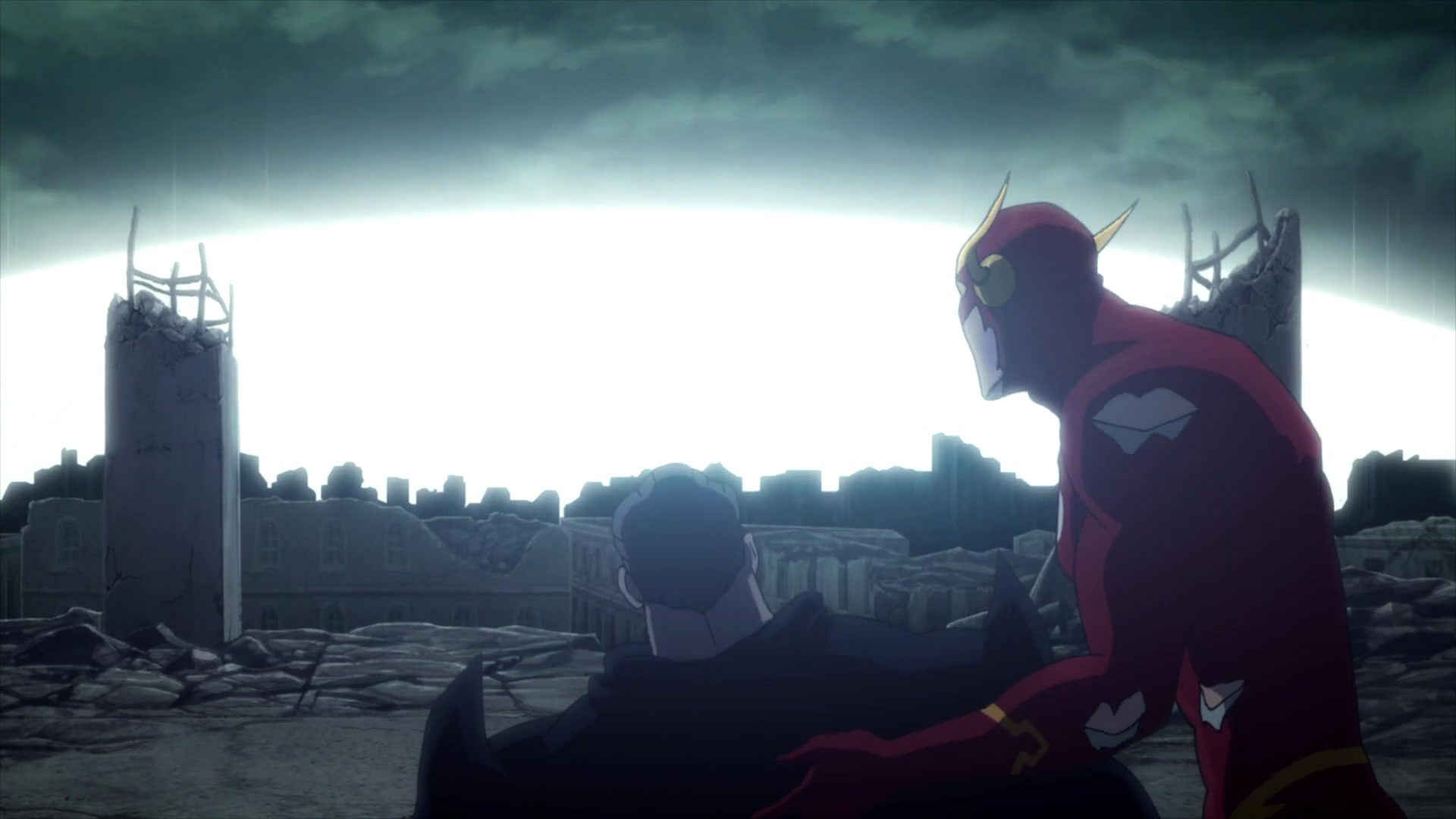
When all hope seemed lost, the heroes unable to stave off the utter destruction incurred by the Atlantean and Amazons’ war, a savior arrived. Despite his life of torture and torment, Superman chose the life of a hero once more, swooping in to decimate the forces of both the Atlanteans and the Amazons.
With their defeat imminent, the Atlanteans set off a doomsday device, beginning the utter annihilation of the planet. Knowing that nothing could survive the ensuing blast except for Barry, fleeing into the safety of the past, Batman, now also mortally wounded, gave Barry a letter for Bruce, pushing him to fix everything.
Knowing now that it was his own deeds which caused this warped reality, The Flash knew what must be done; he must give up his mother once again. Only by her death could the world be saved from destruction. Barry must give up what he needs most for the good of all mankind, sacrificing the goal he had dedicated his whole life to achieving.
Thomas’s letter carefully within his grasp, he ran, fleeing the blast of the doomsday device and disappearing into history. Thomas stared after Barry, silently accepting his fate, knowing that though the blast would soon tear him asunder, everything would be set right.
FIXING THINGS

Once engulfed within the Speed Force, The Flash raced down his former self, preventing him from saving Nora’s life and restoring the timeline to the history he had previously known. Even with all that he had just lost and all that he had just learned about himself, a strange contentment washed over Barry. He could remember that other life just as clearly as his original. Every birthday spent with his mother, every tearful night and joyful day was his to be cherished forever. As Bruce Wayne put it, perhaps those memories were a gift.
Barry, his work done and his peace found, knew that one more thing was required of him; he must help Bruce find a modicum of peace, too. The letter that Thomas had given Barry for Bruce could provide such peace. After giving the letter to Bruce, emotions overwhelmed the customarily stoic Batman, his father’s words haunting him as the story closed out. Both The Batman and The Flash would never be the same again.

